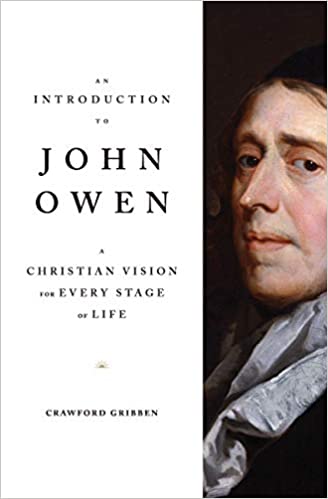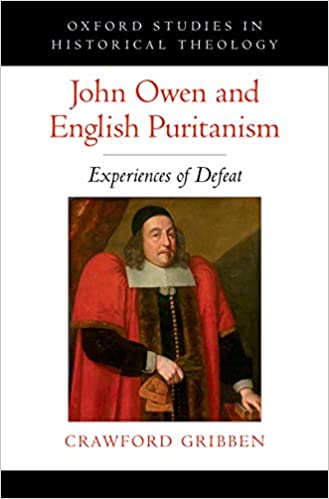By Dr. Crawford Gibben
John Owen (1616–83) was one of the most important English Puritans—and perhaps the seventeenth-century theologian who thought most clearly about the meaning of disaster and mass death. In the first half of his career, he worked hard to establish himself as a minister of the gospel—even as his views on church government changed and he found himself swept up in the political and military revolution that led to the execution of King Charles I, the formation of the English republic, and the brutal invasions of Ireland and Scotland under the leadership of Oliver Cromwell. Throughout much of the 1650s, Owen worked hard to reform the University of Oxford, over which Cromwell had appointed him vice-chancellor. But when Owen was in his mid-forties, the situation suddenly changed. As the country fell out of love with republicanism and the social conservatism of Puritan government, divisions among the revolutionary party led to the return of Charles II in 1660.
After his world was turned upside down, Owen’s achievements became dangerous liabilities. As a new parliament pursued the public torture and execution of high-profile republicans, those ministers who refused to submit to Episcopal ordination and to use the Book of Common Prayer in public worship were ejected from the Church of England. The new community of dissenters found itself subject to a raft of repressive legislation known as the Clarendon Code. Dissenters, in effect, had to self-isolate. They were forbidden to take up any government or military office. They were not allowed to meet in groups of more than five individuals. Dissenting ministers were not allowed to come within five miles of larger towns or those locations in which they had previously preached. Owen understood these events in providential terms. He believed that, in turning its back on the gospel as understood by the Puritans and in persecuting those who believed it, England was ripe for God’s judgement.

That judgement was not long in coming. In November 1664, a comet appeared, of unusual brightness, and remained visible for over two months. In late March 1665, a second comet appeared and remained visible for almost a month. As the ominous portent hung overhead, bubonic plague broke out in London. Fewer than a handful of cases were confirmed by the end of April 1665, when authorities shut up the first houses, hoping to seal off the disease along with those it had infected. But the outbreak could not be controlled. By mid-summer, large parts of the city had been evacuated, as anyone who was able fled to the surrounding countryside, taking the highly contagious disease with them. By September, the death toll was approaching seven thousand per week. When the pandemic burned out, it was discovered that up to 100,000 inhabitants of the capital had died. Those who had fled from London were slow to return. The royal family did not reappear until February, and Parliament was not reconvened for an additional six months. That was almost exactly when the second disaster hit. On September 2, 1666, fire broke out on a street close to London Bridge. Over the course of the next few days, the conflagration swept through vast sections of the city, leaving almost all of London’s housing stock destroyed. And the disasters continued. Plague and fire were accompanied by war and national disgrace. The second Anglo-Dutch conflict, which began in March 1665, ended in humiliating defeat. Dutch marines landed in Chatham, torched the English fleet, and towed away the flagship that was named after the king, in what is still recognized as the Royal Navy’s most crushing defeat.
Owen had no doubt. The horrific combination of comets, plague, fire, and war proved that God was judging England. The mid-1660s were years of dark providences, which God sent when his “patience is abused,” his “warnings are despised,” and people believed themselves to be secure.[1] But what did the judgements mean?
First, Owen observed, the theological problem that had to be addressed was not so much why bad things happened to good people, but why the same things happened to everyone. While the events of disaster came upon all men alike, he explained, they did not come for the same reasons. “God doth frequently involve his church in common calamities; but he hath always a special design towards them in these common calamities.”[2] In other words, the same event might be a providential warning to unbelievers, or even a judgement upon them, while being sent for a completely different reason for the good of the church.
Second, God was judging the nation for its persecution of believers. Terrible events had come upon the nation because of the “violence they have done to God’s portion.”[3] With the remains of the corpses of those who had been publicly tortured and killed still on display around London, this was an easy point to illustrate. But God was judging Christians, too. Believers were guilty of “neglect of duty.”[4] The “churches in this nation are not guilty of those sins whereby God is provoked against the nation to bring on national judgments; but I do say, that churches and professors in this nation are guilty of those sins for which Christ will bring correcting judgments upon churches and professors: so that we are all in the same way and bottom, though not all upon the same account.”[5] Looking at the succession of disasters, Owen believed that the nation deserved its judgement—and so did the church.
Third, Owen continued, “perilous times” were not just times of natural disaster. The providential warnings to church and nation were not being heeded in renewed calls to repentance—and that failure would bring greater judgements, if not in this world, then certainly in the next. For the worst judgement of all was God’s withdrawing the proclamation of the gospel, either by silencing true ministers or by confusing their message with serious error:
“Will you say the time of the public plague was not perilous, because you are alive? No. Was the fire not dreadful, because your houses were not burned? No, you will, notwithstanding, say it was a dreadful plague, and a dreadful fire. And pray consider, is not this a perilous season, when multitudes have an inclination to depart from the truth, and God, in just judgment, hath permitted Satan to stir up seducers to draw them into pernicious ways, and their poor souls perish for ever?”
The most “perilous times” were those in which individuals went without warning to hell.

Owen spoke regularly about these providential warnings in his preaching after 1666. But they dominated his preaching in the last years of his life. After all, the signs of warning were everywhere. Another comet appeared in December 1680, with a long tail that was visible even in daylight, until March 1681. This was followed by an appearance of the comet that was identified by Edmund Halley in 1682. With the doctrinal state of dissenters worse than ever, and with the real prospect that the reign of Charles II would be followed by that of his brother, the openly Catholic James, Duke of York, Owen feared that the English reformation would end in the same way as had the English republic. Preaching in 1681, he remembered how “prodigious appearances in heaven” in the mid-1660s had been warnings of the “wasting, desolating plague,” the “raging fire,” and the “bloody war that ensued thereon.”[6] “Brethren, you know my mind full well in this matter,” he continued, reminding his listeners that he had been insisting upon this interpretation of providence for the previous three years. In the display of lights in the heavens, God was speaking to his people, warning them of the dangers to come. Owen was sure that apostasy in church and state would always be followed by disaster and mass death.
Crawford Gribben (PhD, University of Strathclyde) is professor of early modern British history at Queen’s University Belfast, and previously served as associate professor of early-modern print culture at Trinity College Dublin in Ireland. Crawford is the author of An Introduction to John Owen and John Owen and English Puritanism.
[1] Owen, Works, 9: 394-95.
[2] Owen, Works, 9: 440.
[3] Owen, Works, 9: 295.
[4] Ibid.
[5] Owen, Works, 9: 10-11.
[6] Owen, Works, 9: 10-11.


